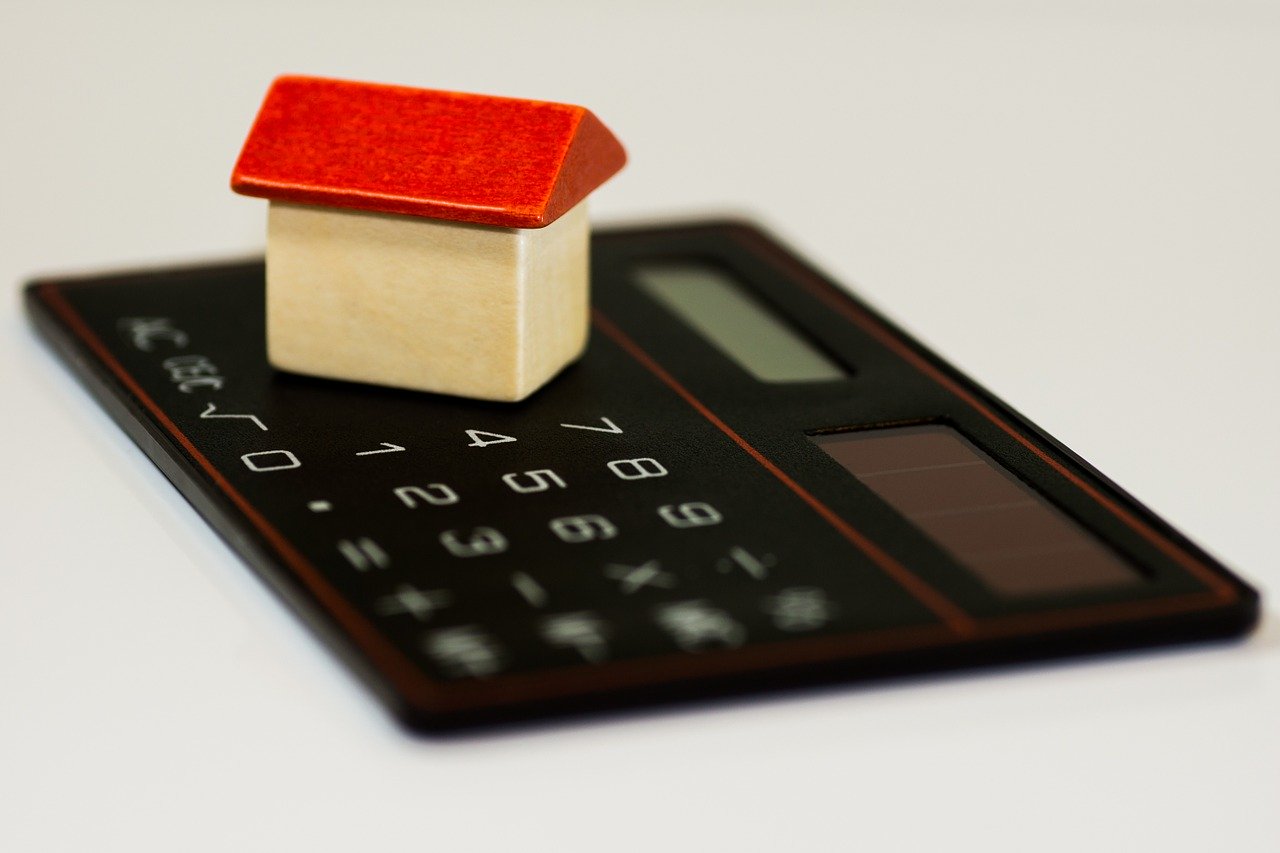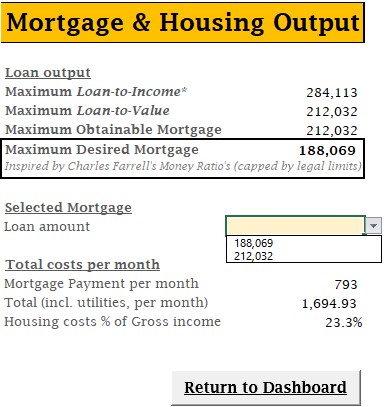This article may contain affiliate links. I will make a small commission if you make a purchase through one of these links, at no extra cost to you. This is how I hope to keep the website up and running for years to come! Please read my disclosure for more info.
Reading or hearing about mortgages, you’ve probably heard about saving at least 20% for your down payment, and stories that tell you to have this down payment to avoid the need of having private mortgage insurance. What do you about mortgage insurance? We will have a look into the mortgage insurances and the need for a down payment.
Expect the best, plan for the worst, and prepare to be surprised.
– Denis Waitley
Mortgage basics
This article is part of a series on the basic variables important in a mortgage:
- Loan amount
- Loan term
- Mortgage types
- Fixing the interest rates
- Tax benefits
- Mortgage insurance
- Other obligations (loans, alimony)
I will of course attempt to include as many different financial philosophies along the way, although this is a topic where I cannot avoid regional specificity when it concerns rules and regulations that apply to various parts of this discussion.
Mortgage insurance basics
Let begin to make clear that mortgage insurance, serves to protect the lender (not you), does that make them something to avoid? Not necessarily, they can also provide you certainty that you’ll not be left with debt if all goes bad, and you have to sell your house with a loss (in the Netherlands). Usually the lender will, because of the safety of the insurance, provide you with a lower interest rate.
The form mortgage insurance can take differs per country, as I do try to relate to the U.S. dominated literature to other parts of the world, I will compare the U.S. with the Dutch system. Let’s begin with the simplest system.
In the Netherlands, you’ll basically find one type of mortgage insurance provided by a government initiated foundation (‘nationale hypotheekgarantie’ or NHG in Dutch). For this you pay a one-time fee of 0.7% of your total loan. This fee is tax-deductible and due to the lower risk for the lender results in a lower interest rate. Therefore, usually an easy return on investment.
In the U.S. there are three main types of insurance, private mortgage insurance, qualified mortgage insurance premium and mortgage title insurance.
The first is often discussed as something to avoid, with Americans trying to save at least 20% for a down payment. As it is common practice (not law) for a lender to ask for a private mortgage insurance, when requiring more than 80% of the home value to be financed. This insurance is usually paid with a monthly premium added to your mortgage payment, although it is possible to pay with an upfront premium and sometimes you’ll have to pay both. Private mortgage insurance can be halted when your payments have reached 22% of the purchase price, generally around 11 years after purchase. If you fall behind on your payments, private mortgage insurance will not protect you and you can lose your home through foreclosure.
Private mortgage insurance still usually requires a minimum of 5% down payment, up to 19.9%. For those that cannot afford that, and those with a credit score below 500, they might qualify for a Federal Housing Administration (FHA) loan, which requires a qualified mortgage insurance premium. With this insurance, borrowers must pay an upfront premium of 1.75%, for any loan amount, and an annual premium of 0.45% to 1.05% for most (if not all) of the duration of your loan.
The last, a mortgage title insurance policy, protects the beneficiary (the lender) against losses if it is later determined that someone other than the seller owned the property at the time of the sale. This is put into place because in the U.S. information is not centralized, making it easy to miss an important piece of evidence. This has little relevance in a comparison with the Netherlands as everything is centralized and digital, very hard to mistake ownership. Mortgage title insurance costs the borrower a one-time premium.
Mortgage insurance pros & cons
The biggest pro is that with a mortgage insurance your lender is likely to provide a lower interest rate as you will automatically fall in the lowest risk category. An added benefit is that this lower interest rate reduces the monthly expenses and thus increases the amount that can be borrowed – qualifying people sooner for a loan, especially convenient for those without steady incomes, such as entrepreneurs.
With interest rates decreasing and house prices soaring year after year, the risk of the mortgage lender not getting their money’s worth has been reducing again and again – in the Netherlands, some lenders even automatically reduce the interest rates of existing mortgages accordingly. This however, does not happen if your mortgage was secured with a mortgage insurance – as your interest rate was already at the lowest risk category. Even if that interest rate is still three times higher than current interest rates – a negative side of the insurance I would say. But probably you would still be stuck with a ‘lower’ interest rate from the time you took out the mortgage anyway.
Buying a house with a mortgage insurance means that you are capped at a certain amount of house that you can buy (in the Netherlands in 2020, max. 310,000). Which can either be a pro or a con, but let’s just keep it as a con as it limits your choices.
Another con might be the costs, although primarily in the American system I would say. The Dutch system is financially manageable and also tax deductible.
Ending with another pro – although, as I began, primarily for the lender – is that you won’t be left with residual debt if you sell the house with a loss, and have fulfilled your obligation to reduce the remaining debt as much as possible (this last bit is important).
Mortgage life insurance
Let’s quickly attack one more mortgage related insurance, and this is the mortgage life insurance. It sounds similar to the mortgage insurance, however this one is designed to protect heirs if the borrower dies while owing mortgage payments. Although in the end it still serves to make sure the lender gets their money.
In the Netherlands it is mandatory to get mortgage life insurance in order to qualify for the mortgage insurance (to reduce the remaining debt) if you are borrowing more than 80% of the house price. Although it could be wise to get one even if it isn’t mandatory. Maybe I’ll touch upon this insurance in more detail in a future post.
Mortgage down payment
Is it necessary? In the U.S. and probably most countries, yes. The Netherlands is probably unique in the way that it doesn’t really require a down payment, only a deposit which you will get back after the transaction is complete. Since 2018, you just need to have enough money (usually around 6% of the loan) to pay for the paperwork, the realtor, the notary and so on and boom! You are a homeowner.
In the Dutch system, bringing in more of your own money can even negate the beneficial effect of the mortgage insurance, as the interest rate is reduced with a decreased loan-to-value ratio. Although you could avoid the requirement of a mortgage life insurance (not saving a lot there, and you might still want to get it).
At least it is understandable why there is so much push on getting the 20% down payment in the American personal finance scene, it will probably save a lot of money down the road. Should it stop you from buying a home indefinitely? Probably not. Sometimes it is better to take your losses and get on the housing ladder – although comparing buying to renting will be a discussion for another time.
Did you learn anything new today? Rethinking your down payment plans or still convinced you had it right from the start? Let me know what else you wish to learn about mortgages in the comments below.
How useful was this post?
Click on a star to rate it!
Average rating 4.5 / 5. Vote count: 2
No votes so far! Be the first to rate this post.
We are sorry that this post was not useful for you!
Let us improve this post!
Tell us how we can improve this post?


